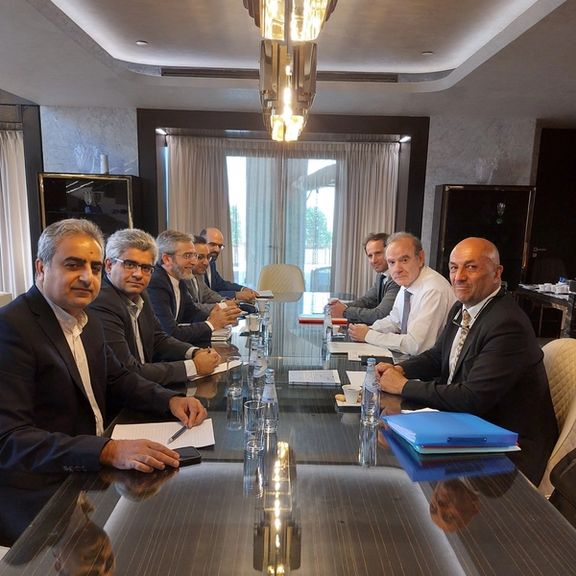EU, Germany Under Fire For Talks With Iranian Regime

The German government and the European Union have come under fire for their talks with officials of the Islamic Republic.

The German government and the European Union have come under fire for their talks with officials of the Islamic Republic.
Secretary General of Germany's Liberal Free Democratic Party (FDP) Bijan Djir-Sarai criticized the meeting of European Union foreign policy official Enrique Mora with Iranian Deputy Foreign minister Ali Bagheri-Kani, who is also Tehran’s chief nuclear negotiator.
The two met this week in Qatar and discussed the chances of reviving the 2015 JCPOA nuclear agreement. Iran’s nuclear program is fast advancing with a high level of uranium enrichment.
In a tweet on Friday, Djir-Sarai called the meeting “wrong and shameful”, saying there is a need to adopt a new strategy in this regard, not to stabilize the Islamic Republic.
There have been reports of an intention on the part of the United States to offer financial incentives to the Islamic Republic in return for a freeze on uranium enrichment at 60-percent purity. Critics argue that a partial agreement, not totally limiting Iran's enrichment, but giving billion of dollars to the regime is abad idea, because it will enable further adventures and strengthen its military.
His reaction was to Enrique Mora's tweet, in which he referred to intensive discussions with Bagheri-Kani in Doha, saying that “For the EU, JCPOA is the best possible, if not the only, framework to address the legitimate non-proliferation concerns of the international community on the Iranian nuclear program.”
Before Djir-Sarai, Norbert Röttgen, a member of the German Parliament, criticized the government for negotiating with the authorities of the Islamic Republic in Abu Dhabi.
By publishing the answer of the German Ministry of Foreign Affairs to his question about this meeting, Röttgen said "Now we can see why the inclusion of the IRGC in the list of terrorist groups is not progressing."
“What do you think it was about when the E3 [UK, France, Germany] and the regime [officials] came together? My tip: The atomic program and the JCPOA,” he said in a tweet.
Iranian activists and their supporters in the West have been campaigning for months to convince European countries to designate the Revolutionary Guards as a terrorist organization. The United States took that step in 2019.
In a letter, the German Foreign Ministry said the representatives of the three European countries that are JCPOA signatories met with Ali Bagheri-Kani in Abu Dhabi on June 12, but the federal government does not comment on the details of the confidential talks.
Earlier, Stephanie Liechtenstein, an independent Vienna-based journalist, quoted her sources as saying that this conversation focused on issues such as the Islamic Republic's nuclear program, military support for Russia's war in Ukraine, and the situation of foreign prisoners.
Recently, in an exclusive report, the Washington Post revealed the three demands of the Biden administration from the Islamic Republic, which were raised during the indirect negotiations between Washington and Tehran, claiming that such demands do not include the "revival of the JCPOA".
Negotiations on restoring the nuclear deal signed in 2015 between Iran and world powers (JCPOA) stalled last year. The US officials have repeatedly said their focus is not on the JCPOA negotiations any longer, but Washington is rather focused on the Islamic Republic’s suppression of its people and Tehran’s military support for Russia in the invasion of Ukraine.